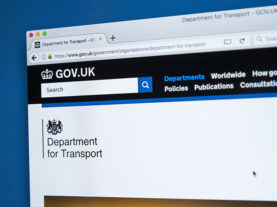The challenging HGV transition requires £100bn in investment to succeed, according to a new report from the Green Finance Institute (GFI). For many operators, the phase-out dates are just one fleet cycle away (2035 for 26t and under and 2040- for over 26t).
The report, ‘Delivering net zero: unlocking public and private capital for zero emission trucks’, concludes that collaboration between the public and private sector will be key. The financial solutions highlighted by the GFI, together with policy recommendations, have the potential to demonstrate how the required finance can be unlocked to accelerate the transition to zero-emission road freight and ensure the UK meets its Net Zero ambitions.
The BVRLA was involved in a workshop with the GFI to help them understand some of the challenges of members and to work through some potential solutions featured within the report.
Toby Poston, BVRLA’s Director of Corporate Affairs said; “HGVs present one of the biggest challenges in fleet decarbonisation, but the carbon reduction prize is massive. As well as finding and funding suitable vehicles, operators are having to consider energy and infrastructure requirements for the first time. The financial risks and upfront costs are eye-watering, and it is no surprise that businesses are crying out for tax incentives and regulatory certainty. Truck operators are being asked to make a huge leap of faith and it is great to see the GFI is encouraging industry and Government to come together to develop innovative solutions.
“The financial barriers are undoubtedly high, but they do not exist in isolation. For a successful HGV transition the Government needs to play its part. HGV operators desperately need a technology roadmap, the longstanding issues with grid connections to be resolved, and an accessible charging network that meets the specific needs of HGV fleets.”
Download the report from the GFI website: Delivering Net Zero: Unlocking Public and Private Captial for Zero-Emission Trucks.




